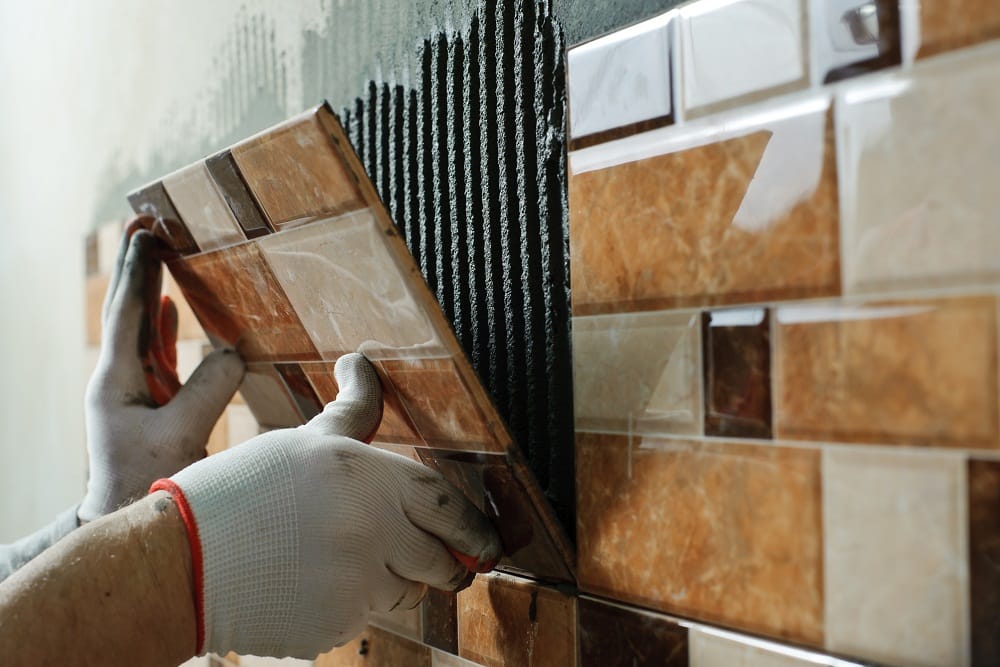Tiles are one of the most commonly used construction elements. But to ensure that their performance is top class and that their layout is perfect, we often have to use tile additives. These additives have multiple uses.
It is used to enhance the tile’s aesthetic value and correct any errors during the manufacturing process. It is also used to modify the finished product. In short, an additive is critical in improving the look and performance of the tile.
Manufacturers of tiles additives use different chemicals as additives. The material used also helps in enhancing the function of the additive.
Accordingly, it can improve dry bending strength and glazing or solve black core and degasification problems. Some of the common materials used for additives are:
Hectorite
Not used as widely because of its fairly rare appearance, hectorite is rich with magnesium. It has a small size but can expand up to 35 times. This means a high surface area, which increases ionic and hydroxyl bonding.
So, hectorite is effective even in small applications. This allows for larger production batches. Glazing can be carried out without worrying about warping. It is a very effective lubricant, especially in extrusion processes.
Magnesium Aluminum Silicate
Magnesium Aluminum Silicate improves adhesive strength. In some cases, it is found to improve by more than 80%! Besides making the tile strong, it also acts as a more effective substitute for mineral thickeners and cellulose ethers in glazing.
It improves glazing by allowing the glaze to dry quickly without leaving any cracks. The glazing is also very stable and does not spoil even over a long period.
To make matters efficient for manufacturers of tiles additives, Magnesium Alumino Silicate works well in suspensions and can be easily removed from the Ball Mill manufacturer India. It does not need sulfates or phosphate dispersants.
Borate
Borates are boron-containing oxyanions. A derivate of borate is used in clay tiles. Used in sugar suspension, sodium pentaborate reduces the need for high temperatures of prolonged firing in the manufacturing process, thus reducing fuel costs.
Borate improves strength, durability, resistance to abrasions, efflorescence, and porosity. The sugar suspension is necessary to prevent the borate from migrating to the surface and controlling its dissolution.
The sugar suspension is partly necessary to control the highly soluble borate. It ensures that the dissolution of borate is evenly spread.
We get a very even distribution of borate in the tile as well as even verification. The sugar burns off during the tile firing.
Barium Carbonate
This material is mostly used for ceramic and glass tiles. Manufacturers of tiles additives use different grades when making barium carbonate because it has a wide range of uses.
It is used frequently in glass tile manufacturing, especially for special glasses tiles. It helps decrease the solubility of glass while increasing its density and brilliance.
PVOH and PVB
They are used as temporary binders in ceramic tiles. They can be equally useful in laminated tiles and glass. One of their biggest advantages is that it is considered environmentally friendly.
If disposed of properly, these do not leave any residue. PVOH and PVB are used to control the shrinkage of ceramic tiles during manufacturing. Hence, it is very important to maintain the integrity of the tile.
Mineral Dispersants
Different types of mineral dispersants are used in the ceramic industry. Mineral dispersants of varying molecular weights are used with a varied pH ranges and neutralizing agents. They are used in both floor and wall tiles.
Wollastonite
Wollastonite is very useful as a reinforcing mineral fiber for ceramics tiles. It can be very handy when working with fine ceramic as a reinforcing agent. It also improves crack resistance, green strength, and dimensional stability.
This helps in reducing costs during tile manufacturing. Two of Wollastonite’s biggest advantages over other additives are low-cost and non-toxic.
Bentonite
It is a type of clay that is used to improve plasticity. Bentonite is a popular additive because it aids the glazing process. It helps the clay to set or stick and improves its workability. It improves the drying rate of glazes.
Some varieties are also used for hardening the glaze and tule. You can find different grades and varieties from manufacturers of tiles additives.



